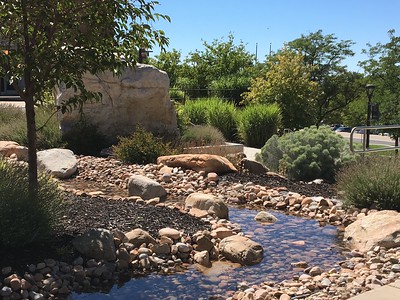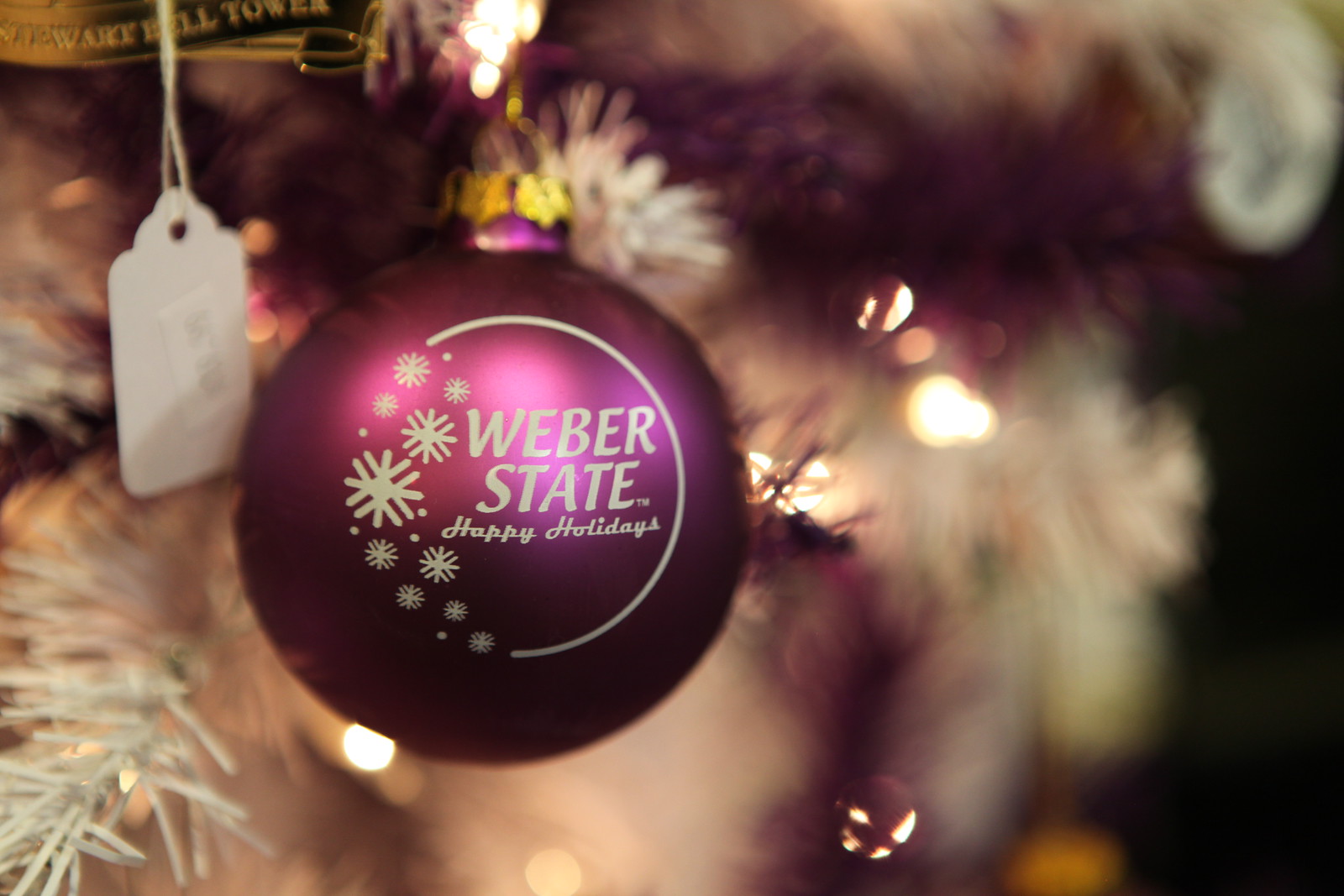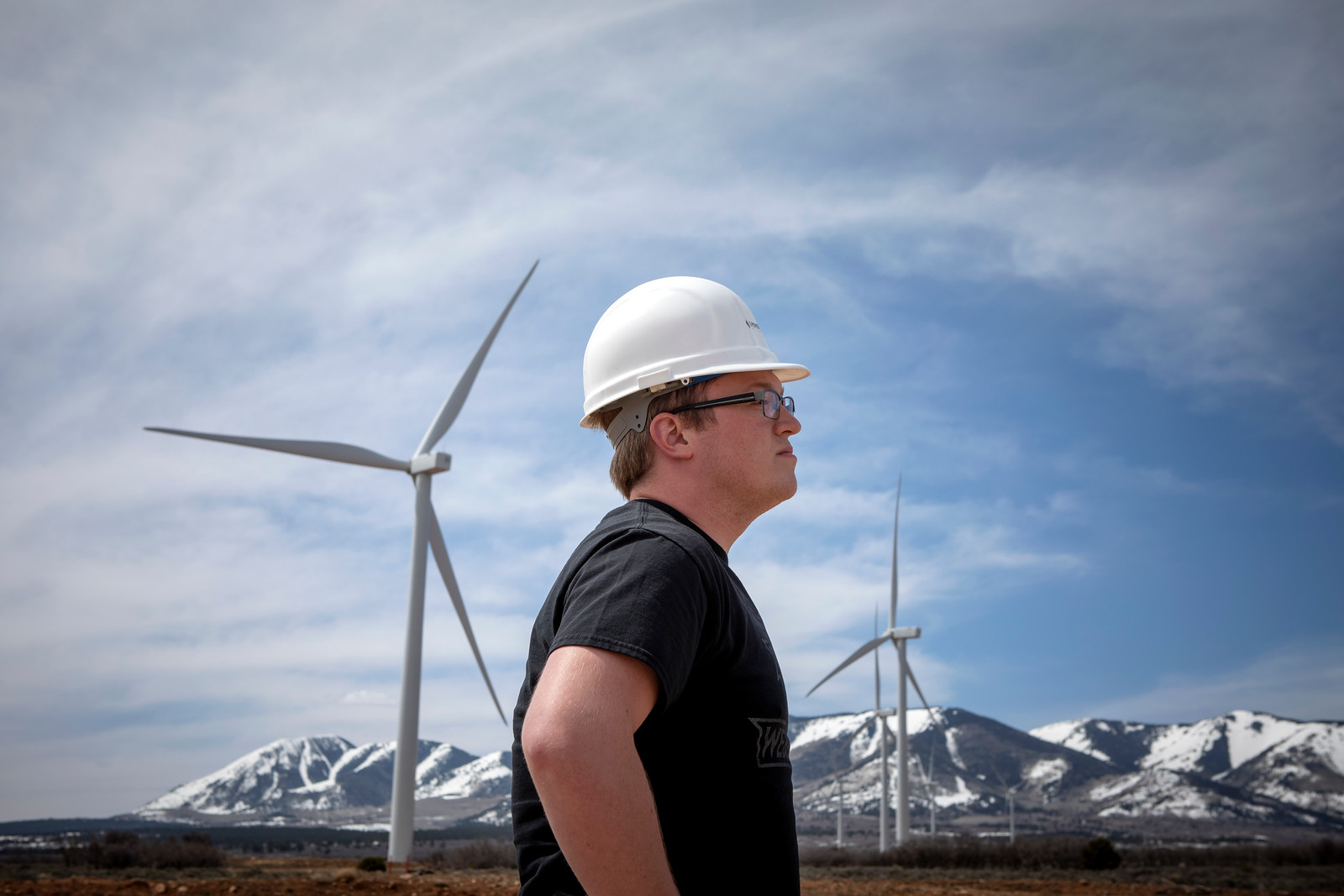.png)
Welcome to the November WSU Sustainability Newsletter!
 Weber State Wins the H2Oath!
Weber State Wins the H2Oath!
The Utah Division of Water Resources held its fourth annual “H2Oath: Utah’s Water-Wise Pledge” competition among Utah’s colleges and universities. Also known as the “H2Oath: Water War,” the competition raises awareness for water-wise behavior. The school that gets the most students, faculty, alumni and fans to take the online oath wins a $5,000 grant to be awarded to the department or program most closely related to water conservation. Weber State competed with schools across the state including:
-
Brigham Young University
-
Dixie State University
-
Salt Lake Community College
-
Snow College
-
Southern Utah University
-
University of Utah
-
Utah State University
-
Utah Valley University
-
Weber State University
-
Westminster College
Weber State won the competition in 2017 but lost to Utah State University last year. This year we took back the title! Thank you to all who participated in taking the oath and committing to conserving Utah’s water. We hope to be back-to-back champions next year!
Funds will be used for a water-wise project on campus to be announced Spring 2020.
(1).png) Spring Sustainability Courses First to Use SUS Attribute
Spring Sustainability Courses First to Use SUS Attribute
The upcoming spring semester marks the first time the sustainability (SUS) attribute is being used by faculty for courses which include sustainability, broadly defined. The attribute was approved by the Faculty Senate earlier this year. The first round of applications reviewed by the Sustainability Attribute Review Committee took place this semester. A list of the more than 20 formally designated courses and/or sections of courses for Spring 2020 can be found here.
Courses formally approved to use the attribute include:
Economics 2010- Principles of Microeconomics (Gnagey)
This course examines an approach to allocating resources in a world with unlimited wants but limited resources.
- English 2010- Intro to College Writing (Hamer)
This course will contain one unit (1/3) of class with sustainability focus, using selected readings.
- GEO 4990- Geoscience and Society Seminar (Frantz)
Case studies, readings, presentations and/or seminar-style discussions related to geologic hazards/disasters, natural resources, climate change and applied geoscience careers.
- Mathematics 1040- Intro to Statistics (Chan)
Basic concepts of probability and statistics including data collection and analysis, correlation and regression, probability. Data sets related to the environment will be used in this course.
- Nutrition 1240- Nutrition and Sustainable Cooking (All sections)
This course explores sustainable ways to acquire, prepare and consume food to support a healthier individual, population and environment. Food science principles will be emphasized in the laboratory experience.
- Sociology 3300-Environment and Society (Trentelman)
Examine the relationships between humans and the environment in addition to gaining research experience through Environment & Society.
Students can view these courses and others on their eweber registration for the Spring 2020 Semester by searching in the advanced search toolbar under “Keyword (any word)” and typing “SUS.” Sections teaching sustainability-designated courses will then be shown.
By making sustainability visible in the curriculum through the SUS attribute, Weber State is helping to foster environmentally and socially aware, engaged and responsible students across all colleges. Faculty teaching sustainability courses may apply for the SUS attribute during the next round of application submissions in the spring (deadline is March 1 for Summer and Fall 2020 courses). For more information, see the SUS attribute website or contact Alice Mulder at amulder@weber.edu.
 Faculty Research Spotlight: Weakening of soil biocrust communities increases vulnerability for wildfires
Faculty Research Spotlight: Weakening of soil biocrust communities increases vulnerability for wildfires
In sagebrush ecosystems of Utah and the West, the soil among plants is often carpeted by biocrusts, which are beautiful and complex communities made of interwoven fungi, algae, lichens and mosses. These same ecosystems are threatened by the invasive alien cheatgrass that displaces native plants and increases fuel for wildfires.
Dr. Heather Root of Weber State’s Botany Department has been fascinated by the interactions between biocrusts and plants for over a decade. She and her collaborators published a study in the academic journal Ecological Applications in October examining how livestock grazing affects biocrusts and cheatgrass in Idaho. Their work suggests that when biocrusts are diverse and cover the soil, native perennial grasses are favored and sites are at lower risk of invasion by cheatgrass and thus at a lower risk for wildfires. However, disturbance by livestock grazing reduces the abundance and diversity of biocrust lichens and mosses. Without this biocrust carpet, sites disturbed by livestock grazing are more susceptible to cheatgrass invasion.
Their work highlights the importance of maintaining and restoring biocrusts to prevent cheatgrass invasion and its associated negative effects on ecosystems and wildfires.
 Sustainable Seasons
Sustainable Seasons
The holidays provide great opportunities to show appreciation for loved ones. This year, consider the environment in your celebrations. Americans throw away 25% more trash during the period between Thanksgiving and New Year’s Day than any other time. This amounts to 25 million tons of garbage, according to Stanford University.
Reducing waste can be fun and easy! Here are some suggestions to help.
Experiences
Not all gifts come in packages. Give the gifts of time and experience. Relax, play, laugh; do something with your friends and family. It will be a gift to yourself as well! Give a gift certificate to the spa or movie theater. Learn together with yoga or cooking classes; give tickets to a concert or a sports event; host a game night or treat loved ones to a new restaurant! WSU, incidentally, offers superb musical theater, choir, and other artistic events.
Handmade Gifts
Taking time to make gifts tells people you put both thought and energy into their gifts. Gather materials to create something that is uniquely theirs, such as Christmas ornaments using family pictures. Or compile a recipe book accompanied by tasty homemade treats. Take an art class and gift your creation, or use essential oils and wax to make a personalized candle.
Upcycling
Perfect gifts are out there waiting for you to find them! Consignment stores, thrift shops and antique stores are a great way to find a gift while reducing waste by not introducing new material into the waste cycle. You can also shop your own closest by picking out pieces of jewelry or sweaters you think would look great on a friend. Pass on treasured books or kitchen wares to those who may love them just as much as you do.
Zero Waste Starter Kit
If you have a friend who’s just getting into zero waste, a zero waste starter kit is the perfect gift. A bamboo toothbrush or plant-based phone case can also make great stocking stuffers!
https://ecocollectiveseattle.com/collections/zero-waste-starter-kit
Reusable Gift Wrap
A tremendous source of holiday waste is wrapping paper. Make use of fabric pieces, newspaper, or brown bags to create your own gift wrap. You just might start a trend! Decorative tins, gift bags and boxes are beautiful and can be reused for years on end. Be sure to save ribbons and bows to reuse and purchase materials without holiday-specific patterns or images so that you can reuse them for birthdays and anniversaries. If you still want to purchase wrapping paper, consider recyclable wrapping paper.
Food during the Holidays:
Many holiday traditions orient around food. So this is a particularly relevant time of year to remind ourselves that according to Project Drawdown, reduced food waste and a plant-rich diet are ranked #3 and #4 among the top solutions to reducing greenhouse gas emissions. If you are interested to learn more on the health and environmental benefits of increasing the plant-based portion of your diet, Plant Based Utah is hosting their annual Food Symposium on November 23 in Park City (registration is required).
 Climate Change & Utah's Future- November & December Sessions
Climate Change & Utah's Future- November & December Sessions
Tuesdays, 12 p.m. to 1:15 p.m. in Lindquist Hall, room 280
Come learn from experts in the field about Utah's changing climate and what that means for Utah with respect to water, agriculture, education, energy, cities, recreation, economy, population and more.
11/26/2019
“Roadmap to Clean Energy: The role of efficiency, solar, building electrification, and EVs in the clean energy transition”
Kate Bowman and Kevin Emerson, Utah Clean Energy
Learn about a positive way forward to clean energy with many co-benefits.
12/03/2019
“Planetary Boundaries & Social Foundations - A framework for a sustainable, just and vibrant space for humanity”
Dr. Rob Davies, Physicist and Climate Communicator, Utah State University
You will want to hear this excellent climate educator's thought-provoking capstone session to the series!

